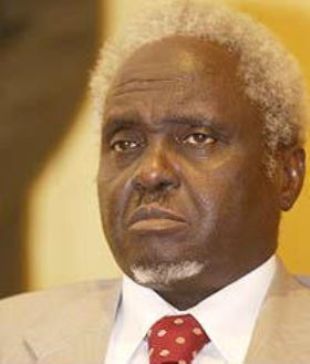Ali al-Haj expected to be elected Sudan’s PCP leader
March 24, 2017 (KHARTOUM) – The Popular Congress Party (PCP) is excepted to elect Ali al-Haj as its new leader on Saturday and decide on whether or not they will participate in the National Consensus Government tasked with the implementation of the national dialogue process.
 Ibrahim al-Sanosi, the interim secretary general took the position after the death of Hassan al-Turabi last year, but he has no intention to continue.
Ibrahim al-Sanosi, the interim secretary general took the position after the death of Hassan al-Turabi last year, but he has no intention to continue.
The PCP Shura Council on Thursday nominated three candidates for the position of the secretary-general including Ali al-Haj, Ibrahim Abdel Hafiz and Thuraya Youssef. One the three will be elected for the position on Saturday.
Ali al-Haj who for more than twenty years was in exile in Germany is expected to be elected for the position, different sources told the Sudan Tribune.
Also, his election may pave the way for the participation of the Islamist opposition party in the upcoming government. Al-Haj believes that if they didn’t back Bashir’s government other opposition parties may find their place there.
He is favourable for the reunification of the Sudanese Islamic forces. He is from Darfur region.
The party historical leader, Hassan al-Turabi was keen that al-Haj keeps his position as a deputy secretary general of the party during all the past period.
Al-Turabi in his political testimony to the party called for the need to reunite the Sudanese Islamist forces which have been divided since 1999. He also called to ensure the restoration of democratic freedoms in the country.
The PCP is the only large opposition group that maintained its support to the national dialogue during the past years. The National Umma Party of Sadiq al-Mahdi and the Reform Now Movement of Ghazi Salah al-Din suspended their participation in the process as they blamed the ruling party of refusing to ensure public freedoms.
In his speech before the PCP general conference, Sadiq al-Mahdi said the Sudanese political forces are facing major challenges including the place of the religion in the state, freedoms and the democratic rule and the relation between the centre and periphery regions in Sudan, among others.
(ST)
